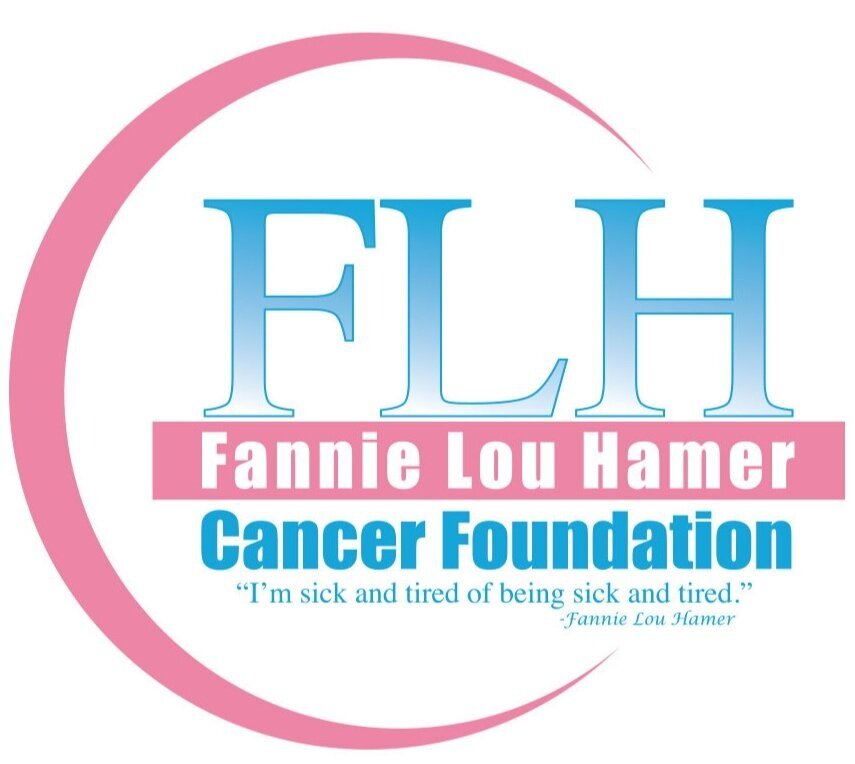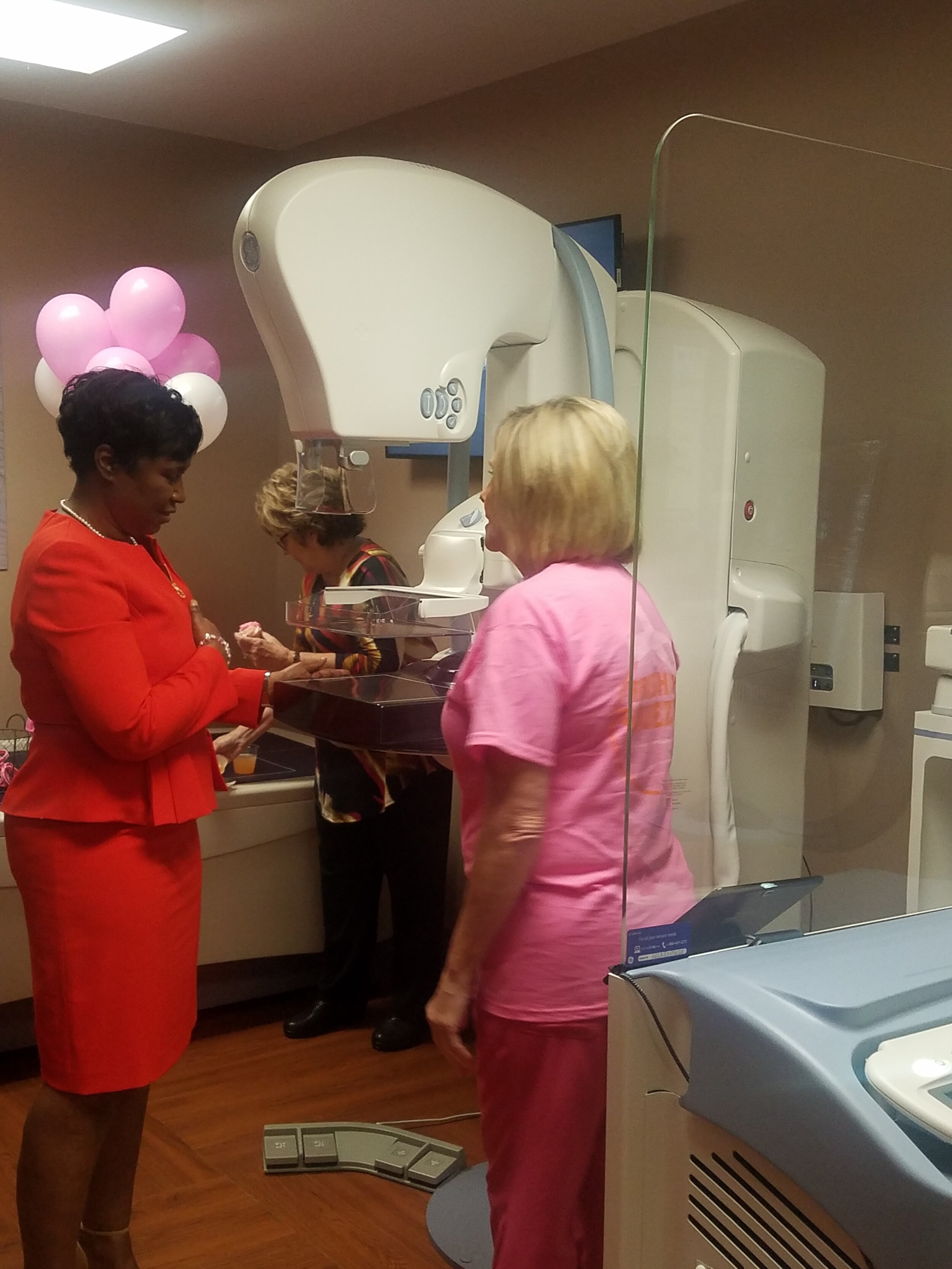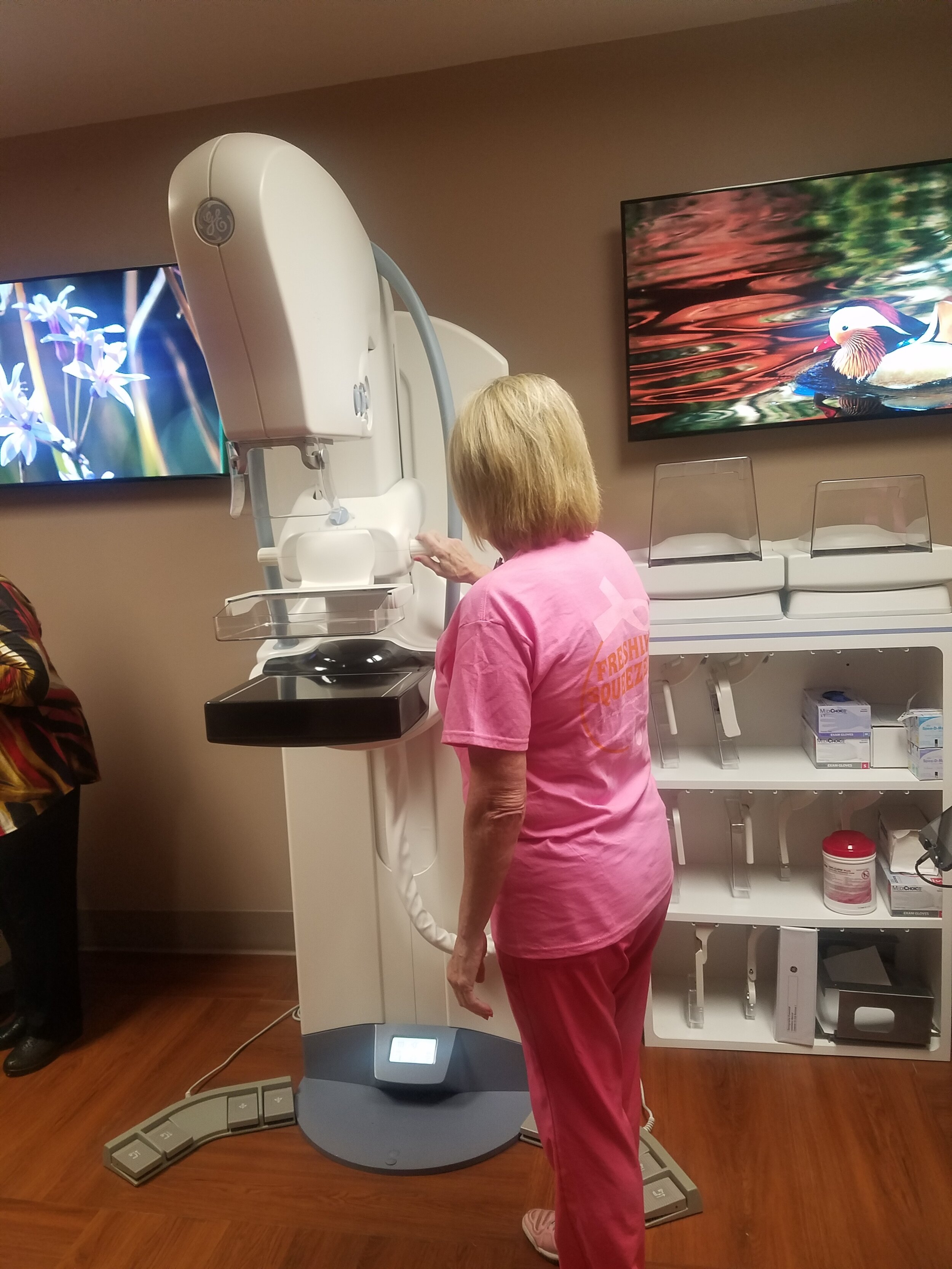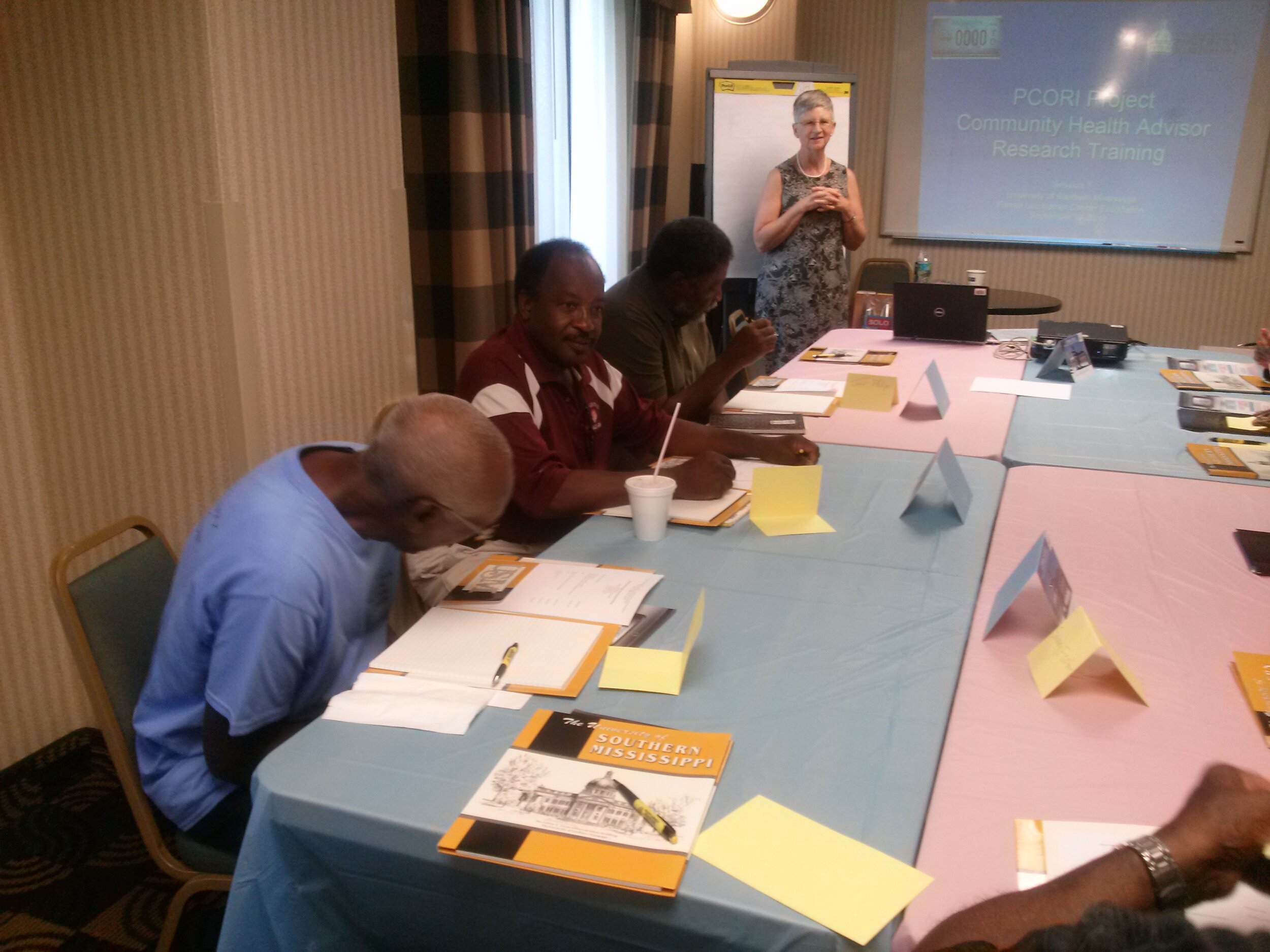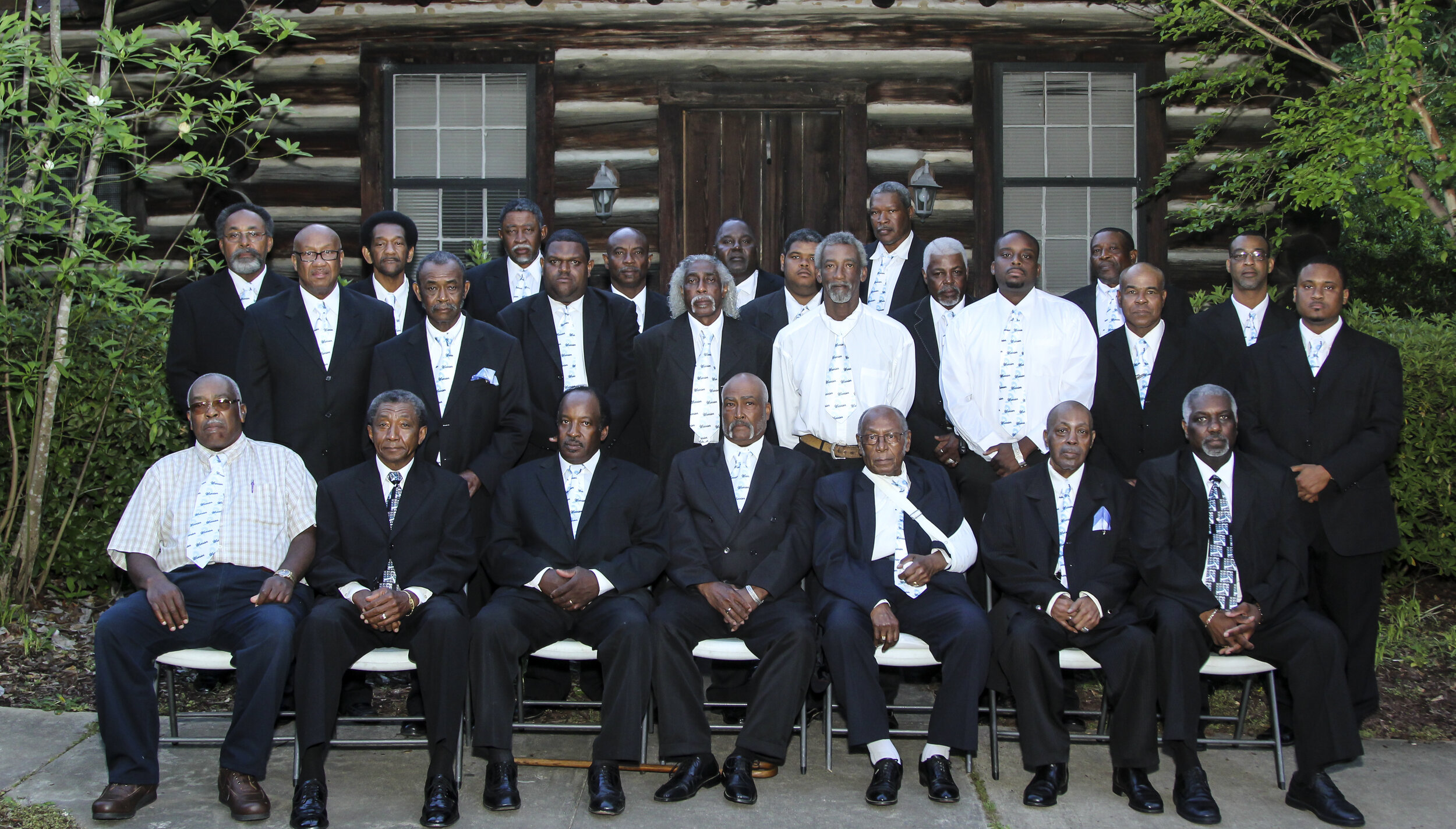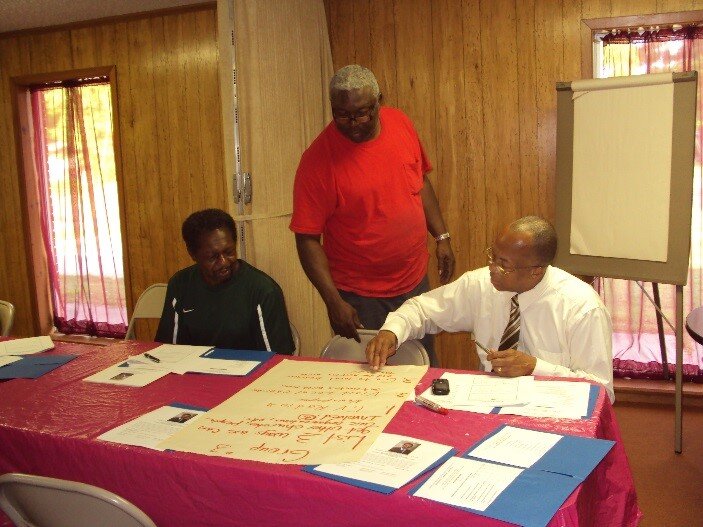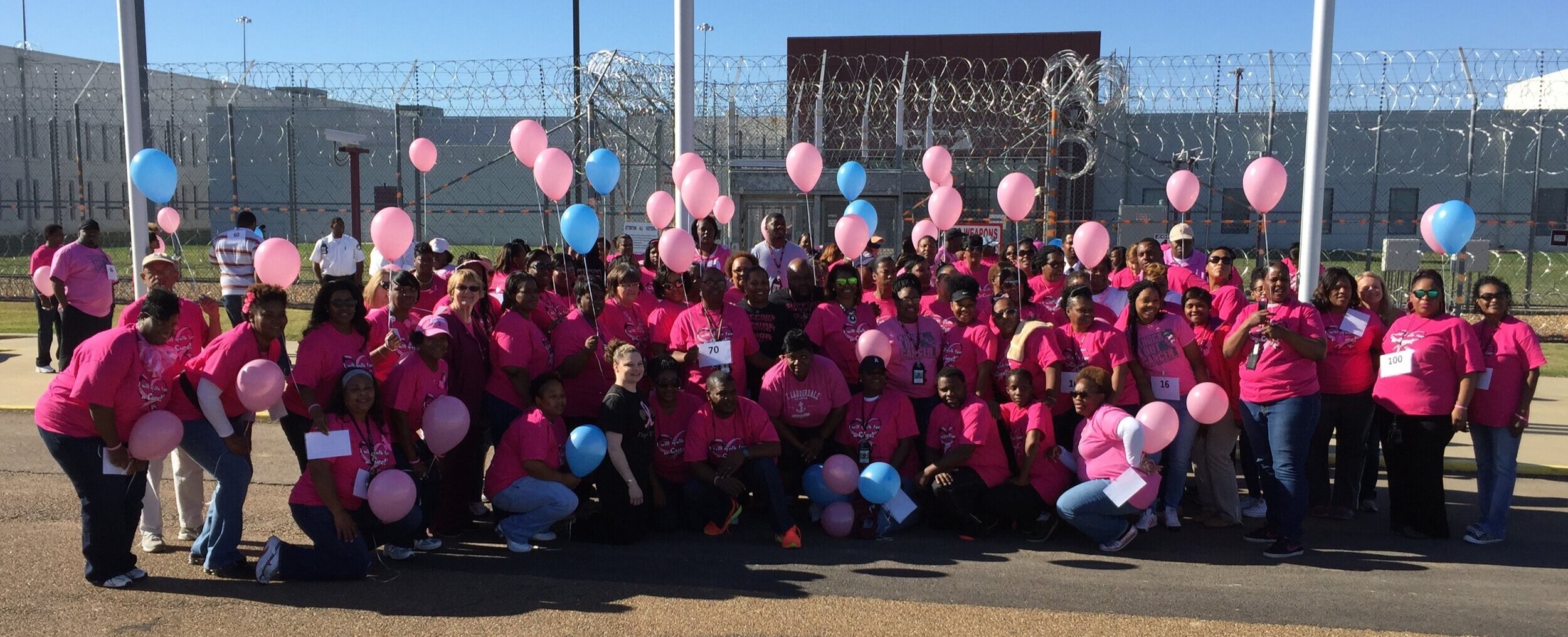OUR PROGRAMS
Community health advisor program
The Community Health Advisor (CHA) Program thrives on the idea of empowering “natural helpers.” A “natural helper” is defined as a community-oriented person trusted as someone to turn to in times of need.
After completing 16 hours of cancer education training, each Community Health Advisor (CHA) works in three action arenas – with individuals, through service providers, and in their local community – to promote cancer awareness, screening and early detection.
The program is a three-way partnership amongst a non-governmental agency (Fannie Lou Hamer Cancer Foundation (FLHCF), a service-providing research agency (Mississippi Network for Cancer Control and Prevention/The University of Southern Mississippi), and the local community. Together, we are designed to improve and strengthen the health care in local communities.
Who Are They?
The FLHCF CHAs are:
A community-oriented person;
A person who helps individuals and communities solve health and other problems; and
A volunteer concerned about the health and well being of his or her neighborhood.
What Do They Do?
FLHCF CHAs
Assist their neighbors, friends, family and co-workers by offering counseling, advice and services’ referral for health and nutrition problems.
Meet with fellow health advisors, professional health providers, and other services agencies to identify priority community health nutrition issues and plan solutions.
Encourage and support neighborhood self-help efforts to address specific needs affecting the community’s health and well-being.
Breast HEalth Outreach Program
The goal of the Community Health Advisor’s Breast Health Outreach Program (BHOP) are four-fold: 1) To recruit medically underserved women (ages 40-64) for both first time screening and annual screening; 2) To link medically underserved women with a health care provider to obtain annual clinical breast exams and mammograms with follow-up counseling and education; 3) To increase awareness about the MS Breast and Cervical Cancer Program (MS BCCP) and importance of early detection of breast cancer through clinical breast exam (CBE) or breast self-examination (BSE); and 4) To educate women about Medicaid and Medicare coverage of annual screening mammograms and assist them in obtaining the service from providers who accept Medicaid and/or Medicare.
Some women are less likely than others to get screened for breast and cervical cancer. There are many reasons for disparities in breast and cervical cancer screening in the U.S. including lack of health insurance, low income, lack of access to care (such as lack of a local or easy to get to mammography center or lack of transportation to a mammography center), lack of a usual health care provider, lack of a recommendation from a provider to get mammography screening, low education level, lack of awareness of cancer risks and screening methods, access to follow-up care after an abnormal screening test, and cultural and language differences.
These reasons may explain some of the disparities in screening rates among certain populations of women, including racial and cultural groups. Through evidence-based methods for improving the health status of marginalized populations, The Fannie Lou Hamer Cancer Foundation (FLHCF) and its partner, the University of Southern Mississippi work with Community Network Partners (CNPs) to increase breast and cervical cancer awareness and increase early detection screening services among underserved women throughout the rural Mississippi Delta.
cOMMUNITY HEALTH ADVISORS’ men in black & blue fighting prostate cancer
In order to educate and promote early detection of prostate cancer, the Fannie Lou Hamer Cancer Foundation (FLHCF) developed and implemented a pilot program, “Men in Black and Blue Fighting Prostate Cancer.”
The program targets an underserved population, African American men, from one of the least healthy communities in the nation, the rural Mississippi Delta.
It equips men to reach out to their peer group, specifically those who may be reluctant to speak candidly with female Community Health Advisors (CHAs).
Instituted in Greenwood, Leflore County, Mississippi, this program is the first of its kind to be implemented in the state of Mississippi.
It is supported by funding from the Mississippi Partnership for Comprehensive Cancer Control, as well as technical support and staff from The University of Southern Mississippi.
We too can make a difference
Founded in 2008, “We Too Can Make a Difference” (We2MAD), uses the Community Health Advisors (CHAs) model to present an eight-hour breast health and cancer education training to high school students.
We2MAD utilizes the Communities-in-Schools Recruitment Model, designed for high school (sophomore) females, to train Junior Community Health Advisors (J-CHAs). The J-CHAs are educated to identify and recruit women, (family, friends, and neighbors ages 40 and older), from their community who may rarely or never have had a breast exam (whether a clinical or self-exam) or who are at high risk for developing breast cancer.
In each iteration, 20 female students per each targeted underserved county are identified, recruited, and trained.
The pilot project was initially funded by the Mississippi Breast and Cervical Cancer Program (MS BCCP), and thereafter by: the Opens Meadow Foundation; Wal-Mart store #716; City of Greenwood, Mississippi; Leflore County Board of Supervisors; Sunflower County Board of Supervisors; and Komen for the Cure.
Since its inception, the students have identified more than 400 high-risk women who have rarely or never been screened for cancer. The program has been implemented in five rural Mississippi counties (Holmes, Humphreys, Leflore, Sunflower, and Washington) and in five county schools.
Core Civic- Tallahatchie County Correctional Facility (FLHCF Financial Partner)
Body and Soul: A Celebration of Healthy Eating and Living
The National Cancer Institute wellness program, entitled “Body and Soul: A Celebration of Healthy Eating and Living,” is developed for African American churches.
It is employed by the FLHCF through workshops and outreach activities designed to increase participants’ knowledge of fundamentals related to healthy eating, the relationship of fat intake and obesity to cancer, and the consequences of sedentary lifestyle.
Its activities focus on nutrition and healthy habits as they relate to risk factors for cancer and other co-morbidity diseases.
The Body and Soul program is designed to inspire church leaders and congregation members to adopt nutritious food practices, including the consumption of five or more servings of fruit and vegetables each day for better health. Churches who embrace the Body and Soul curriculum empower their members take care of their bodies as well as their spirits. The program advocates for pastoral leadership, activities that promote healthy eating, a church environment that supports healthy eating, and peer counseling.
Men Too Get Breast Cancer
Estimates for breast cancer in men in the United States for 2020 are:
About 2,620 new cases of invasive breast cancer will be diagnosed
About 520 men will die from breast cancer
Breast cancer is about 100 times less common among white men than among white women. It is about 70 times less common among black men than black women . Like black women, black men with breast cancer tend to have a worse prognosis (outlook). For men, the lifetime risk of getting breast cancer is about 1 in 833 .
The Men Too Get Breast Cancer Program is designed to raise awareness and encourage prevention.
Visit the American Cancer Society’s Cancer Statistics Center for more key statistics.
S-U-R-V-I-V-O-R-S-H-I-P
The FLHCF walks survivors through the LIVESTRONG Guidebook, a two-book set that helps cancer survivors and caregivers navigate the physical, emotional and practical concerns they may have during their cancer journey. The Guidebook provides information and resources to address specific concerns that patients, loved ones and caregivers often have at the time of diagnosis, during treatment and post-treatment. The accompanying LIVESTRONG Planner and Journal allows the user to organize their information and record their individual experiences. The LIVESTRONG Guidebook helps survivors, loved ones and caregivers: learn about cancer and treatment; find the best health care; find quality resources and support services; learn what questions to ask; make health and life planning decisions; understand insurance and financial issues; keep track of the cancer experience; and find hope.
Hard to Reach Populations
Hard-to-reach’ is a term used to describe those sub-groups of the population that may be difficult to reach or involve in research or public health programs. The Fannie Lou Hamer Cancer Foundation (FLHCF) is reaching the hard to reach populations by going door-to-door to identify men and women who have rarely or never been screened. Using a holistic approach, the FLHCF is transforming lives.
